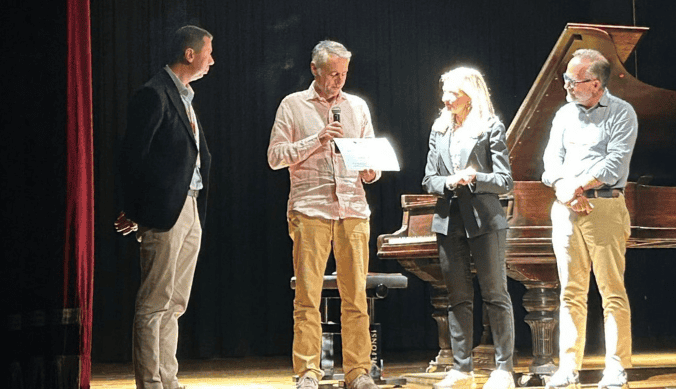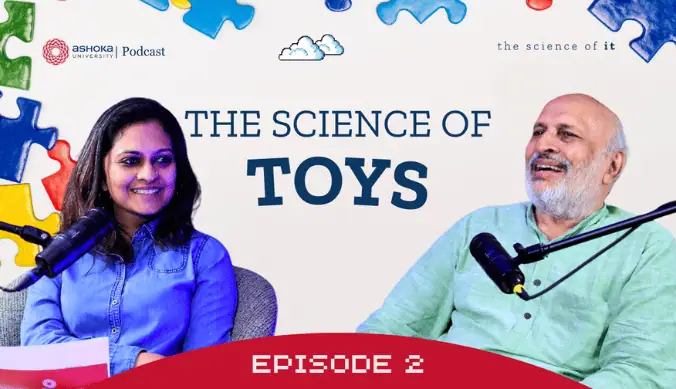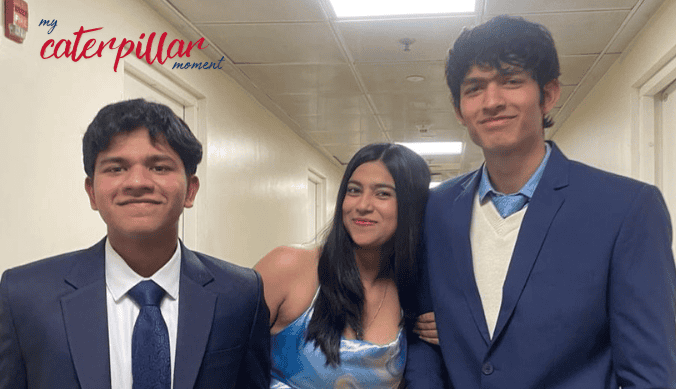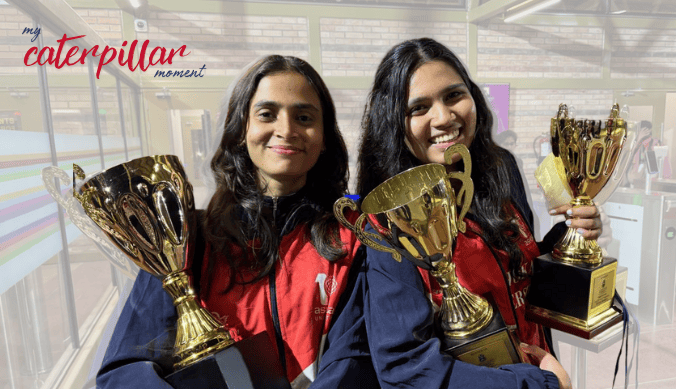Ashoka University Deepens Global Engagement through Expansive Summer Abroad Programmes
Ashoka University deepens global impact in Summer 2025 with over 200 student placements abroad, new international partnerships, and diverse academic collaborations.
In an ambitious demonstration of its global academic vision, Ashoka University has facilitated an expansive and deeply impactful Summer Abroad initiative in 2025, placing over 200 undergraduate and postgraduate students at leading global institutions through a mix of competitive scholarships, institutional nominations, and self-funded opportunities. The summer placements highlight not only student excellence, but also the strength of Ashoka’s growing portfolio of strategic international partnerships.
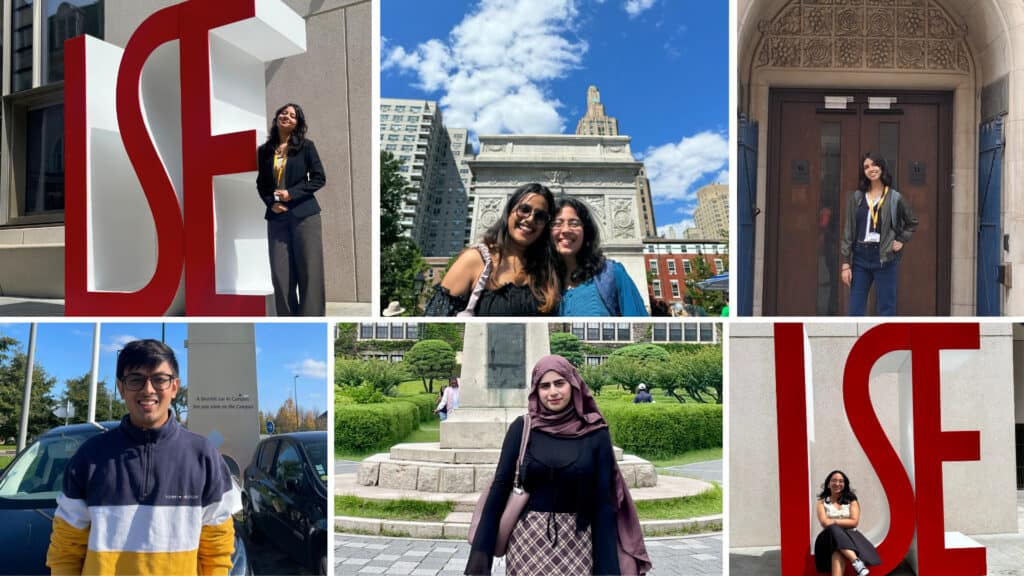
Students pursued summer programmes and research opportunities across North America, Europe, East Asia, Africa and Oceania, working with over 40 globally ranked universities and research centres.
By the Numbers: Ashoka’s Summer Abroad 2025
– Almost 200 students across 5 continents
– 40+ global institutions
– 50+ funded or partially funded placements
– 20+ competitive research internships
– 15+ formal nomination agreements
– Most visited countries: UK, US, France, Australia, South Korea, Switzerland
Institutional Nominations: Expanding Access to Elite Programmes
Ashoka’s collaborative agreements with globally recognised institutions enabled select students to be nominated for summer programmes on competitive terms, in many cases unlocking tuition waivers, financial aid, or fee discounts. These nomination-based partnerships not only reduce financial barriers but also place Ashoka students in curated academic experiences aligned with institutional excellence and research strengths.
Key nomination-based placements this summer included:
- King’s College London (KCL): A longstanding partner, KCL welcomed over 11 Ashoka students to its flagship summer school. Students engaged in intensive modules in politics, psychology, media studies, literature, and economics and finance, with nominations covering tuition or offering discounted fees.
- HEC Paris: Through a selective nomination process, 3 students were offered places at the HEC Summer School, specialising in finance, investment banking, and international economics, with priority admission and cost support for nominated students.
- University of Birmingham: Under a joint Ashoka-UoB scholarship programme, Young India Fellow Tiapong Tzudir benefitted from full tuition, accommodation and living expenses coverage, reaffirming the strength of Ashoka’s UK partnerships.
- Utrecht Summer School: Ashoka nominee, Twisha Sangwan at Utrecht received full tuition waivers for short-term academic modules in The Golden Age of Dutch Art, reflecting growing interest in continental Europe as a summer destination.
- Australian National University (ANU): Simar Randhwa undertook fully funded research internships, Climate and Fluid Physics at ANU, placing Ashoka students within elite laboratory environments in Canberra.
- Cornell University: Through a selective research partnership, Ashoka student Arshia Kohli was nominated for research internships in economics and finance, incurring only minor administrative fees. She is working on the Emerging Markets Multinationals project under the supervision of Dr Lourdes Casanova.
Scholarship and Funding: Investing in Global Exposure
More than 100 Ashoka students participated in summer programmes with full or partial financial support, awarded either directly by the host institution or coordinated through Ashoka’s Office of Global Education. These included:
Hansen Leadership Institute at the University of San Diego: Fully funded fellowship awarded to Harsh Jha, UG25, for leadership development and intercultural exchange.
University of California, Santa Cruz: Ashoka-endorsed applications led to placements for students in physics and computer science research, self-funded but institutionally supported.
University of Minnesota, Australian National University, University of Zurich, and Hult Business School also hosted Ashoka students in fully funded internships across disciplines.
Lehigh University: Ashoka nominees received partial funding with full programme fee waivers, participating in the Mountaintop unique programme.
LSE summer school: Ashoka students received a 10% discount on tuition for all LSE summer programmes, the same as UCL, Utrecht. Boston offered 15%, and Stanford offered a 20% discount along with application fee waivers to Ashoka students.
Additionally, Ashoka students secured external support to attend high-impact events such as the Youth Assembly at the United Nations and the India Conference at Harvard.
Academic Diversity and Programme Types
Ashoka’s summer placements spanned a wide academic spectrum, including:
- Summer Courses: Intensive academic modules at LSE, UCL, Oxford, Cambridge, Stanford, Columbia, and Sciences Po, among others. Students pursued advanced coursework in economics, public policy, psychology, political science, and media studies.
- Research Internships: Hosted by institutions such as the University of Notre Dame, National Geographic Society, UC Santa Cruz, ANU, and Gwangju Institute for Science and Technology, these programmes allowed students to contribute to ongoing research projects, often under faculty mentorship.
- Leadership and Innovation Programmes: Students participated in global forums such as the Hansen Leadership Institute, the Monaco Ocean Protection Challenge, and UN-based youth summits, enhancing skills in entrepreneurship, diplomacy, and sustainability.
- Online and Hybrid Formats: Recognising the continued relevance of flexible models, students also engaged in virtual courses at Hanyang University and the University of Pennsylvania, ensuring broad accessibility.
LSE: The Most Popular Summer Destination
A record-breaking number of Ashoka students – over 90 undergraduates – attended the LSE Summer School, making it the single largest cohort for any host institution. Students studied courses ranging from behavioural economics to public finance, integrating London’s vibrant academic environment with global peer engagement. All students at LSE were self-funded, reflecting the demand for the school’s international credentials and course design.
Building a Culture of Global Learning
This year’s cohort represents a remarkable cross-section of Ashoka’s student body—across disciplines, batches, and career trajectories. While the majority of students self-funded their participation, the presence of strategic nomination pathways and scholarships significantly broadened access, especially for students from underrepresented disciplines or with demonstrated need.
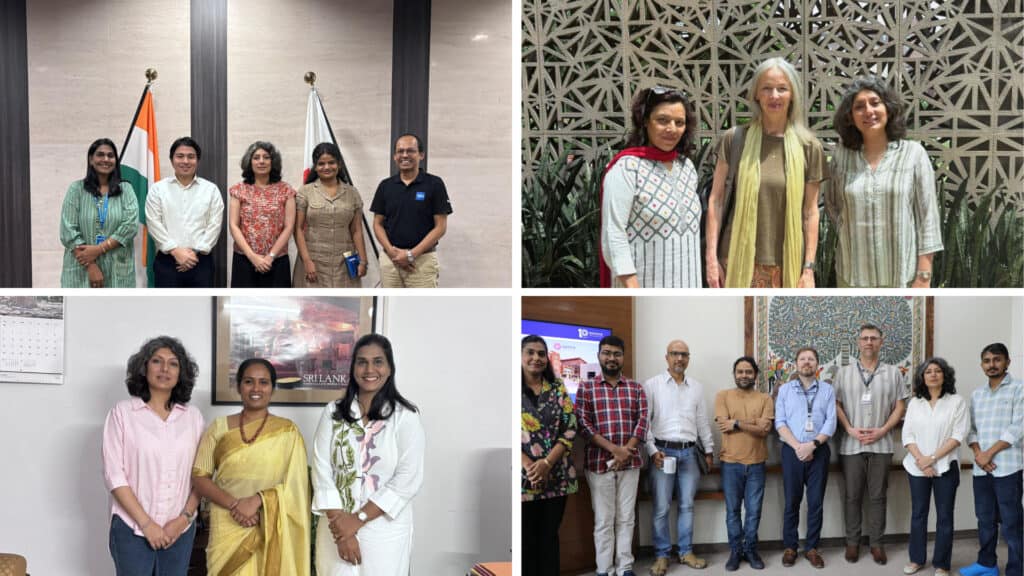
Important Interaction with Embassies of Argentina, Japan, and Sri Lanka
This month, the Office of Global Education had the privilege of visiting the Embassy of Argentina, Embassy of Japan, and Embassy of Sri Lanka, where we had engaging discussions with the Ambassador, Counsellors, and Senior Advisors. These meetings reaffirmed our shared commitment to academic excellence and cultural exchange.
- Embassy of Argentina
On 14 July, we met His Excellency Mr Mariano Caucino, along with key members of his team, including Head of Chancellery, Mr Marcelo Boffi, Deputy Chief of Mission and Mr Andrés Sebastián Rojas, Head of Political Section. The meeting provided an excellent opportunity to explore avenues for academic collaboration between Argentine institutions and Ashoka University, with a particular emphasis on student and faculty mobility. - Embassy of Japan
The same week, we met officials from the Embassy of Japan, including Mr Tomita Daisuke, Third Secretary (PR & Culture), Mr Surajit Sinha, Assistant Advisor (Information & Culture) and Ms Jayati Shubha (Information, Culture, Education and PR) to explore deeper academic engagement between Japanese universities and Ashoka University. Our discussion centred around student and faculty mobility, as well as the strong potential for joint research collaboration, particularly in areas where both India and Japan have complementary strengths, such as science, technology, and innovation. - Embassy of Sri Lanka
Most recently, we were welcomed by the counsellor from the Embassy of Sri Lanka, Ms Nirosha K Herath, who is a representative of the Sri Lankan High Commission in New Delhi. Together, we explored how Ashoka’s liberal‐arts pedagogy can enrich Sri Lankan higher education and build a sustainable partnership between Ashoka and the Sri Lankan education sector. The key highlight of the interaction was to discuss in detail the Visiting Student Programme. We are looking at seeing more Sri Lankan students participating in our VSP. We also discussed the possibility of hosting language learning classes and faculty-led joint research projects.
These embassy visits mark a watershed moment in Ashoka University’s global engagement strategy. By institutionalising two‐way student and faculty mobility, we will offer our community unparalleled opportunities to learn, collaborate, and build lifelong connections across continents.
- Embassy of Sri Lanka
Most recently, we were welcomed by the counsellor from the Embassy of Sri Lanka, Ms Nirosha K Herath, who is a representative of the Sri Lankan High Commission in New Delhi. Together, we explored how Ashoka’s liberal‐arts pedagogy can enrich Sri Lankan higher education and build a sustainable partnership between Ashoka and the Sri Lankan education sector. The key highlight of the interaction was to discuss in detail the Visiting Student Programme. We are looking at seeing more Sri Lankan students participating in our VSP. We also discussed the possibility of hosting language learning classes and faculty-led joint research projects.
These embassy visits mark a watershed moment in Ashoka University’s global engagement strategy. By institutionalising two‐way student and faculty mobility, we will offer our community unparalleled opportunities to learn, collaborate, and build lifelong connections across continents.
Campus Engagements
- Monash University, Australia
We were delighted to host a delegation from Monash University, Australia, on 11th July, led by Professor Christopher Thompson and Professor Peter Boag. The visit provided a valuable opportunity to explore potential avenues for faculty exchange and joint research collaboration, particularly in the fields of Biology and Biosciences. The discussions from Ashoka University were led by OGE Director Gitanjali Rana, Professor Dilip Kumar, Professor Sandeep Ameta, and Professor Sudipta Tung. We look forward to building on this dialogue and strengthening academic ties between our institutions. - University of Manchester, UK
We were pleased to host Deborah Williams from the University of Manchester, UK, for a two-day visit to the Ashoka University campus. Her visit included an engaging discussion with the Office of Global Education to explore opportunities for student exchange and to promote our Visiting Student Programme (VSP). Deborah Williams also had the opportunity to meet with inbound international students currently on campus, who shared their experiences and offered a candid perspective on student life at Ashoka, highlighting how welcomed and happy they feel as part of our community.
Virtual Interactions
This month, the Office of Global Education held insightful virtual meetings with the University of Otago (New Zealand), TU Dresden (Germany), and the British Council, New Delhi. These conversations focused on expanding opportunities for student and faculty mobility, deepening academic collaboration, and promoting joint initiatives in areas of shared interest.
Inbound Mobility
This summer, during June and July, we welcomed various students on campus for the Visiting Student Programme. We have 5 students from the UK from universities like Birmingham, Durham, King’s College London and 2 students from US universities like Cornell and Smith College, we also have one student from Kirori Mal College, New Delhi. These students have enrolled for the Summer Course and Summer Research from June – August.
The students who joined us in July are:
Hope Nafula Sikolia from the University of Birmingham is here for a Summer Course, ‘Literature and the world’ by Professor Abir Bazaz and “Python for Research in Life Sciences” by Professor Sudipta Tung.
Manon Elin Wigely from King’s College London is studying a course, ‘Python for Research in Life Sciences’ by Professor Sudipta Tung.
Bronwen Rosemary Craddock from Durham University is studying a summer course, ‘Environmental Studies’ by Professor Mitul Baruah
Sabzara Ali from Smith College is doing summer research on ‘Access to health insurance and health behaviour’ with Professor Aparajita Dasgupta.
Prakshi Dhall is currently studying at Kirori Mal College, New Delhi and has joined Ashoka for the summer course on ‘Artificial Intelligence and Technology for Entrepreneurs’ by Professor Tushar Rakesh Jaruhar.
New Partnerships Alert
Ashoka University recently signed new MoUs with leading global institutions like Freie University and the University of Copenhagen to strengthen academic exchange, collaborative research, and student mobility. These partnerships reflect our commitment to fostering a globally engaged campus. Through these alliances, we aim to create meaningful opportunities for students and faculty alike. Such collaborations are key to building a vibrant, international academic community.
Heritage Walk: An Excursion with Ashoka’s Visiting Students
- “A truly wonderful day that gave me a chance to explore the gems that Delhi holds.” – Devarshi
- “It was a relaxing day out to see the pretty parts of Delhi.” – Daisy
- “Exploring Delhi’s monuments, cuisine, and activities like boating during Heritage Day gave me a vibrant and direct immersion into Delhi’s rich cultural and historical heritage!” – Aharnish
- “I enjoyed the heritage walk where we got to visit many places I’d never been before, like Purana Qila. I also think it’s very appropriate that, as a university so dedicated to Mahatma Gandhi’s vision, we visited Raj Ghat to pay our respects. Overall, it was a good trip.” – Neil
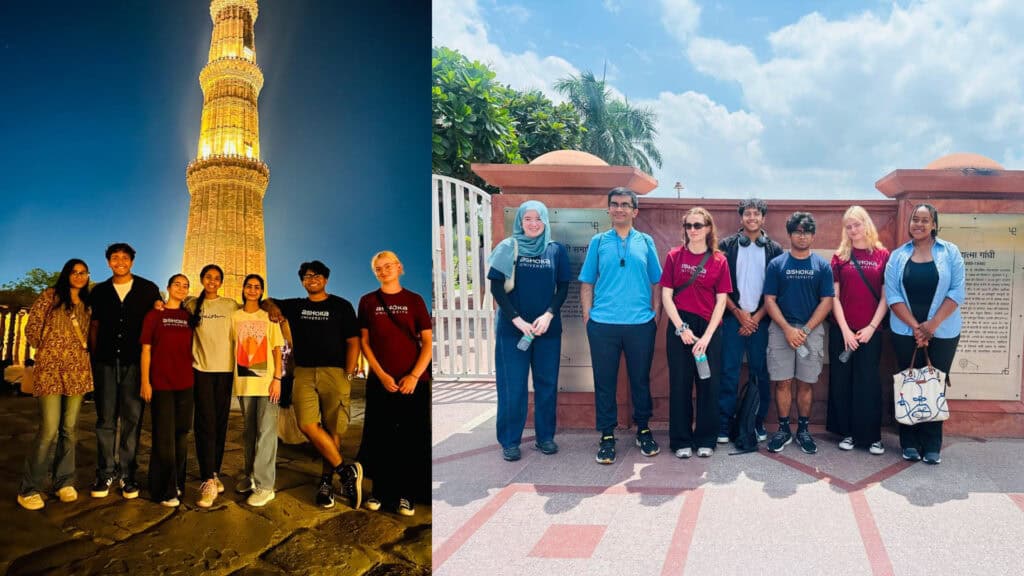
Study at Ashoka








